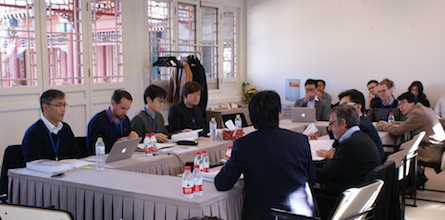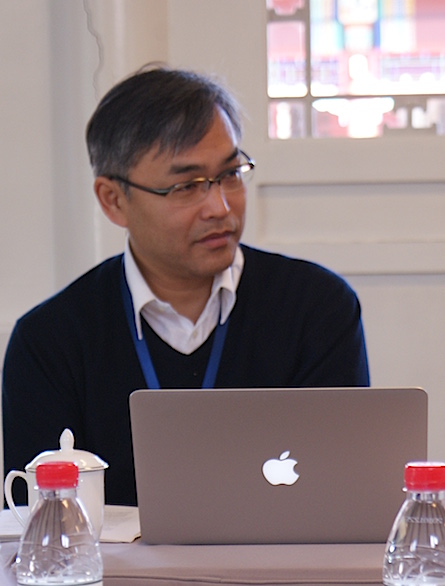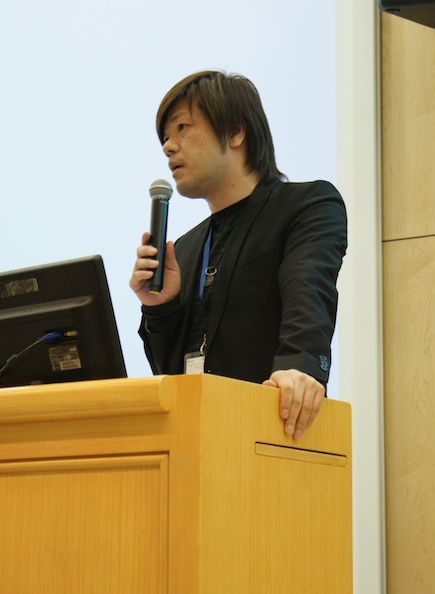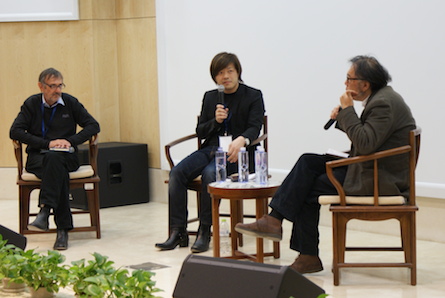[Report] PKU-UTokyo Spring Institute 2017 (1)
Report on 14th March 2017
The first session for the 2017 PKU-UTokyo Spring Institute began, appropriately enough, with a thought-provoking lecture from Professor Takahiro Nakajima entitled “The Progress of Civilization and Confucianism in Modern East Asia: Fukuzawa Yukichi and Different Forms of Enlightenment”. Broadly, this lecture employed various writings of Fukuzawa Yukichi, Nakae Chōmin and Liang Qichao to compare the evolution of different East Asian discourses of ‘civilization’ that emerged during the 19th century and their complex relation to that region’s tradition of Confucianism. In this sense, Professor Nakajima’s lecture provided us with a crucial starting point for our later discussions on how ‘civilization’ has been framed and formulated in both East Asia and beyond.
What was most striking was Fukuzawa’s incredibly pragmatic approach to the question of civilization, wherein his emphasis on the initial attainment of the material elements of Western civilization through individual education and national modernization dismisses Confucianism as an archaic, anti-modern impedance to such a goal. This was a result of Fukuzawa’s understanding of modern religion as something that aids the stabilization of governance through being externally practiced. For Fukuzawa, Confucianism penetrates too far into the realm of the interior. It is thus ill-suited to the practical and material political realities that Fukuzawa so keenly grasps in his ‘shallow’ understanding of civilization.
In addition, Professor Nakajima’s analysis of Nakae Chōmin’s alternative formulation of Confucianism as something ‘for the people’ rather than something ‘for the state’ was deeply interesting. Here, Nakae uses his radically people-focused formulation of Confucianism to promote a sort of ‘diversity of development’ that emphatically rejects the single telos of modernity/civilization emphasized by the likes of Fukuzawa.
Though many of fascinating points that were brought up in the post-lecture discussion deserve to be repeated here, Professor Xudong Zhang’s comments on the relationship between the oft-paired terms ‘civilization’ and ‘enlightenment’ warrant special mention. Zhang’s basic point was that although we often equate these two terms (or, indeed, combine them, as in 文明開化), we need to rethink this relationship along more antagonistic lines. Civilization (as a discourse) essentially acts as an ordering force that ahistoricises a particular set of historical circumstances, becoming, in effect, a type of superstition. Enlightenment, on the other hand, can be thought of as an independent force that constantly seeks to criticize and thus destabilize the hegemonies established by civilizational discourses. This novel reimagining of the civilization/enlightenment relationship provided a useful frame for the points brought up in Professor Nakajima’s lecture and discussion, as well as for the subsequent lectures and discussions.
The second session was the first public lecture of the institute, in which the author Keiichirō Hirano discussed “The Shift of Vitality” and his concept of “Dividualism”. Mr. Hirano first focused on the French poet Charles Baudelaire’s conception of ‘vitality’, a type of organic expression of existence or meaning which stands in stark contrast to the mechanistic evolution of society implicit in the word (and accompanying discourse of) ‘progress’. The expression of this vitality is not fixed but rather constantly shifts through the natural variety of the world. For Baudelaire, it even finds manifestation in sections of society that have been deemed useless in relation to the hegemonic narrative of progress, such as prostitutes and criminals.
With this idea of a constantly shifting vitality in mind, Mr. Hirano then explained his self-devised concept of dividualism. While the discourses of modernity and modernization beget the idea of individualism (literally the denial of division – ‘in’-dividual) in their implicit focus on a single, undivided truth, Mr. Hirano sees social relations as more accurately characterized by a plurality of identities that are each expressed according to different situations. None of these identities (termed ‘dividuals’) is truer than the other, as they mirror the internal variety of one’s own consciousness. What is important, then, is the free management and expression of one’s dividuals. This has decidedly political implications, as more authoritarian regimes can prevent the expression of dividuality and thus cause an imbalance between one’s internal plurality and the external expression of this plurality.
The post-lecture discussion was extremely fruitful, focusing strongly on the meaning of ‘uselessness’ in the contemporary context and the importance of relationality or dependency in establishing our own identities and our wider understandings of the nature of the world. Dicussant Xi Chuan brought up two particularly useful terms related to these topics: ‘contemporality’, referring to the potential for the existence of a plurality of modernities; and ‘interbeing’, referring to the social influence that determines our own perspectives.
Though the current global hegemony exerted by neoliberal capitalism obfuscates these social and pluralistic aspects of our existence through establishing a discourse of what is considered ‘useful’, this second session’s lecture and discussion has indicated a deep potential to rethink our identities beyond the hegemonic discourse and rediscover the importance of our social relations.
Felix Eugene Borthwick (The University of Tokyo)










